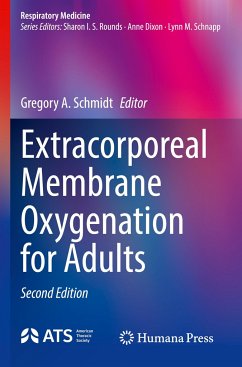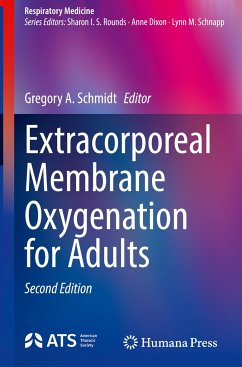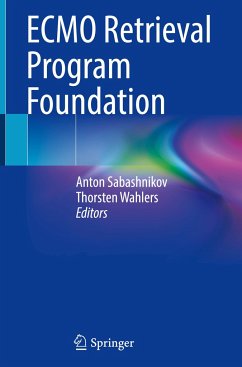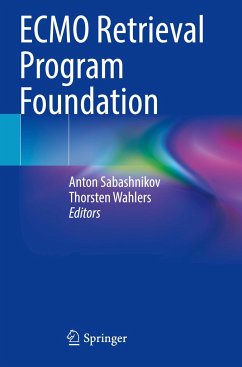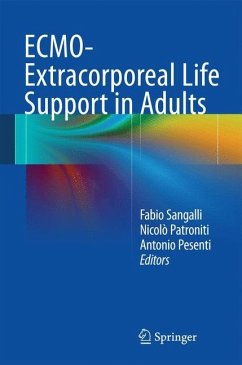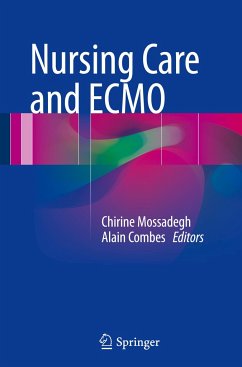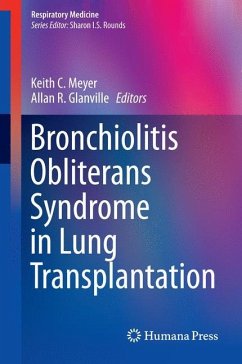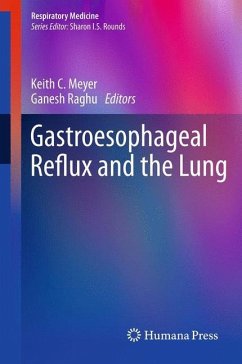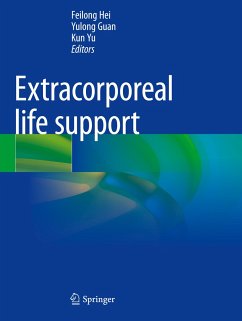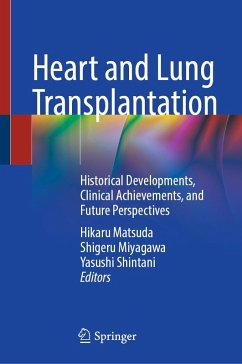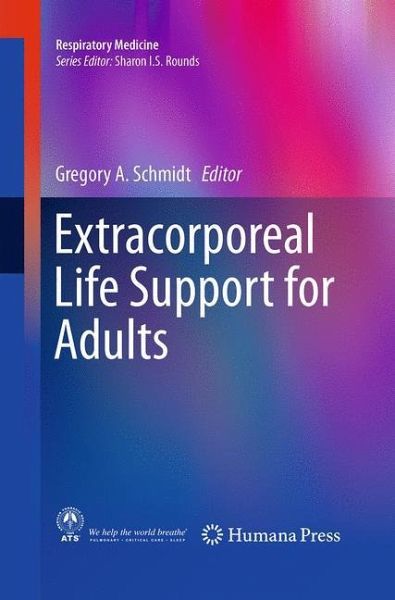
Extracorporeal Life Support for Adults
Versandkostenfrei!
Versandfertig in 6-10 Tagen
68,99 €
inkl. MwSt.

PAYBACK Punkte
34 °P sammeln!
This book presents a concise, evidence-based review of extracorporeal life support (ECLS) for adult diseases. It describes the use of ECLS with patients who are experiencing severe hypoxemic respiratory failure (ARDS and pneumonia), ventilatory failure (status asthmaticus and COPD), cardiogenic shock and circulatory or gas exchange failure following complications in cardiothoracic surgery, as well as its use as a bridge to lung transplant. Historically, clinicians have used ECLS as a last resort; however, this text details the technological improvements, evidence of improved outcomes and adver...
This book presents a concise, evidence-based review of extracorporeal life support (ECLS) for adult diseases. It describes the use of ECLS with patients who are experiencing severe hypoxemic respiratory failure (ARDS and pneumonia), ventilatory failure (status asthmaticus and COPD), cardiogenic shock and circulatory or gas exchange failure following complications in cardiothoracic surgery, as well as its use as a bridge to lung transplant. Historically, clinicians have used ECLS as a last resort; however, this text details the technological improvements, evidence of improved outcomes and adverse consequences of alternative treatments that are causing this modality to be more commonly adopted. Topics include a description of the complex physiology and technology underlying ECLS; the evidence base for its use in specific clinical conditions; vascular access techniques; daily management of the circuit and patient; guidance regarding the weaning and decannulation process and recommendations for crisis management and rehabilitation related to ECLS. Extracorporeal Life Support for Adults is ideal reading for practicing physicians, nurses, perfusion specialists, therapists and critical care trainees who are considering whether to refer their patients for ECLS or are already providing ECLS and are seeking a practical reference to best practices and updated information.





